Philly librarians bring music to the masses
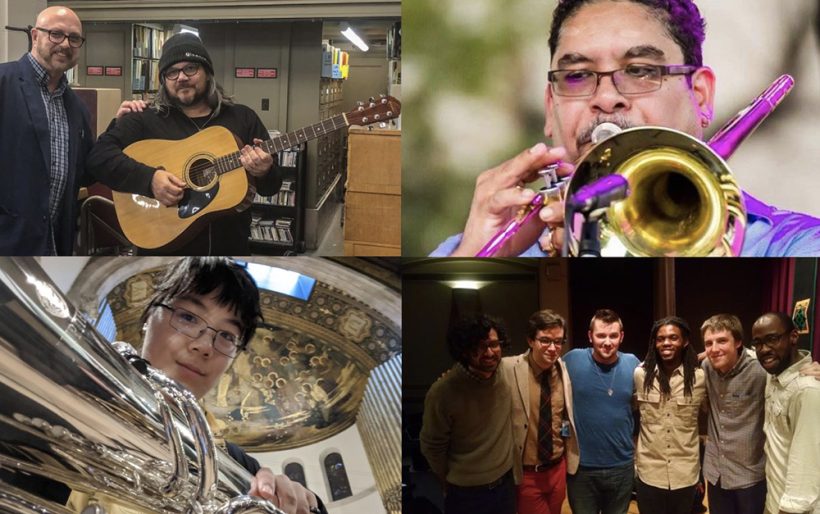
You might remember being told that the library is a place for peace and quiet, for contemplative silence, a serious environment where voices shouldn’t rise above a whisper. While all that is certainly true – you’re not allowed to go to your local branch and make a ruckus just cause “The Key told me it was okay!” – the recent viral video of Los Angeles teen punk band The Linda Lindas showed the world that the library is also a place to rock.
This isn’t some sort of aberration. While not every day is a punk rock show, music is very much part of the foundation of the modern library. At the Free Library of Philadelphia it’s front and center, from the Music Department — complete with an instrument lending program (not currently in operation because of the pandemic, of course) and a sheet music collection that numbers more than a quarter million pieces — to various programs and concerts both at the main branch and the 54 neighborhood libraries scattered around the city.
At the library you can research music copyright law, check out the absolutely massive Edwin A. Fleisher Collection of Orchestral Music, listen to an old LP, or join a workshop about songwriting. Oh, and of course you can borrow a book or movie on the topic. It is a huge resource, one that is maintained and grown by an army of librarians, many of who come from a musical background themselves.
For this article we spoke to a selection of librarians from across the FLP system who both play in bands and put together music-related programming at their respective branches. On top of learning more about them and the work that they do, we asked each librarian to give a recommendation for a music-related book or movie that you can check out for yourself. After all, that is their job.
Ray Banas
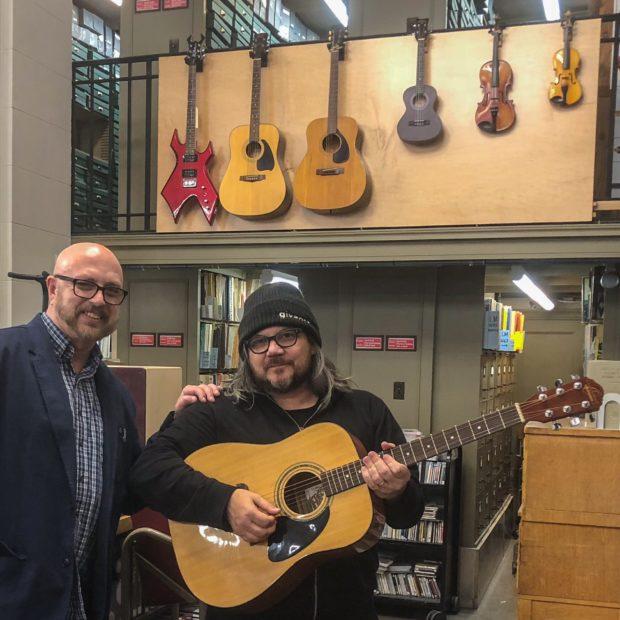
The Key: Tell me about yourself and where you work.
Ray Banas: I work in the Free Library of Philadelphia’s Music Department. My current position for the last six years has been the Department Head of the Music Department. I have worked in the Free Library for 21 years and an additional 18 years in other City of Philadelphia departments.
In addition to sharing the collection of music books & scores to patrons, I enjoy selecting the titles for the collection. Prior to my promotion to the Music Department I worked as a selector (Library Coordinator) in the Collection Development Office for ten years where I ordered well over a million dollars’ worth of books in the areas of music, history, political science, world languages, and urban literature.
TK: What is your musical background?
RB: I am primarily an electric bass player but when I jam with friends at Philly Folk Fest campsites and at friend’s houses I enjoy the challenge of playing melodica.
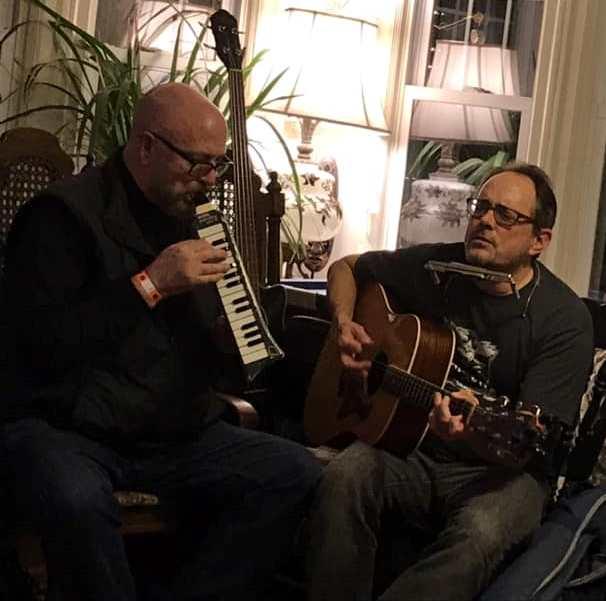
TK: You’ve done a lot of music-related programming at the FLP. What sticks out?
RB: One “phun” program was when I hosted a Holly Bowling concert at the Free Library’s Montgomery Auditorium on June 29th, 2016, nestled in between two Phish concerts at the Mann.
TK: What book would you recommend?
RB: I recommend Jeff Tweedy’s current book How to Write One Song. I was fortunate to meet Jeff before his Let’s Go (So We Can Get Back) Author Event at the Free Library checking out one of our circulating guitars in our Musical Instrument Collection.
Will Echevarría Jr.
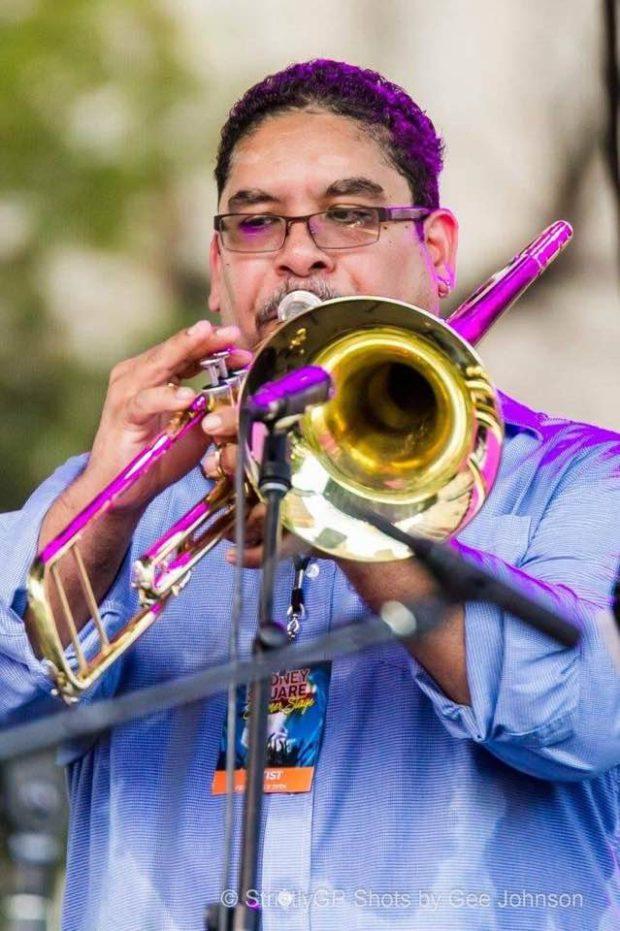
The Key: Tell me about yourself and where you work.
Will Echevarría Jr.: My name is Willhem Echevarría Jr. but everybody calls me Will. I am a Library Supervisor I at the Music Department in Parkway Central. Before that, I worked in Special Collections here at FLP, and as an archivist/reference librarian at the Historical Society of Pennsylvania. I have a Bachelor in Music from UARTS and a Masters in Library Sciences from the University of Puerto Rico, where I’m originally from.
TK: You’re a musician and composer. What sort of music do you play?
WE: I am involved in several music projects most of them spearheaded by myself. A big band focused on blending jazz with Afro-Rican folk rhythms being the one that takes most of my creative time and effort. All music is composed and arranged by myself, except a handful of songs that are part of the standard jazz repertoire.
TK: What books would you recommend people check out?
WE: Some of my favorite books on music I have discovered here at the Music Department:
- Music: A Subversive History by Ted Gioia
- Louis Armstrong: Master of Modernism by Thomas David Brothers
- The Danger of Music and Other Anti-Utopian Essays by Richard Taruskin
- Cuba and its Music: From the First Drums to the Mambo by Ned Sublette
Ellen Wang
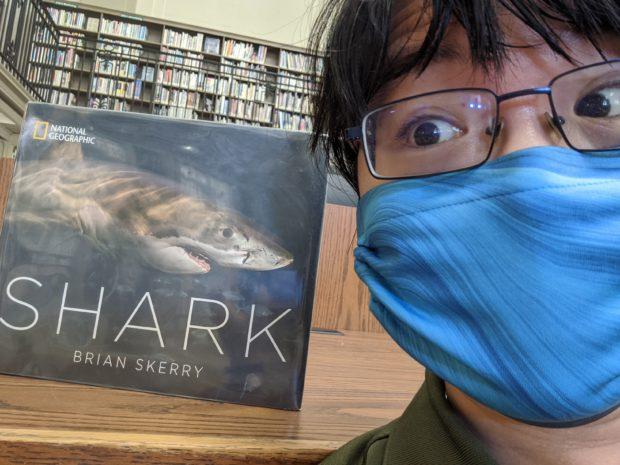
The Key: Tell me about yourself. Where do you work? What do you like about being a librarian?
Ellen Wang: My name is Ellen Wang. I work in the Science & Wellness Department at the Central branch. My position is Librarian 2 and science specialist. It will be two years in August. I [also] worked as a part-timer at the library for about two years. The main reasons I like to work at the library is that information is at my fingertips. While everyone has internet, books for me provide concrete evidence to help me learn more and better. When meeting new patrons, sometimes the topics they need help with may ignite my own interests. That is one thing about browsing: you find some hidden books.
TK: You’re a musician as well as a librarian. What do you play? Have you done any music programming at the FLP?
EW: I have played the trumpet for 20 years and also own a flugelhorn. I was part of the Philadelphia Freedom Band (PFB) as a trumpet player. I also played my euphonium for one concert with PFB [but] then the pandemic hit. During the pandemic I stumbled upon a Virtual Concert Band video and have been with the group since then. I hope I can play with an actual ensemble again. I contributed to writing a blog on our free library site about the VCB.
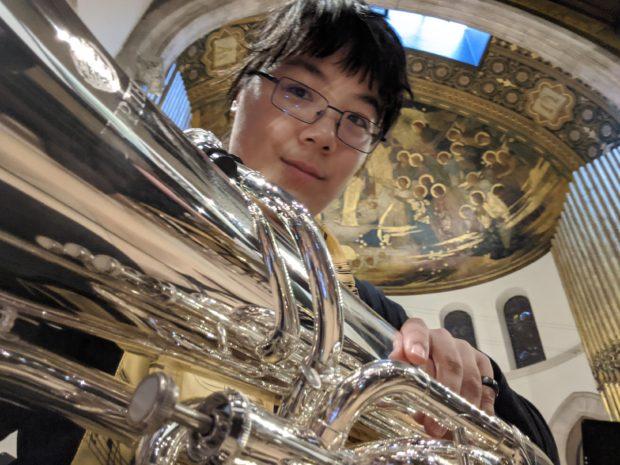
TK: Do you have a recommendation for a music-related book or movie?
EW: My favorite musicals: Mary Poppins and Singing in the Rain.
Ben Remsen
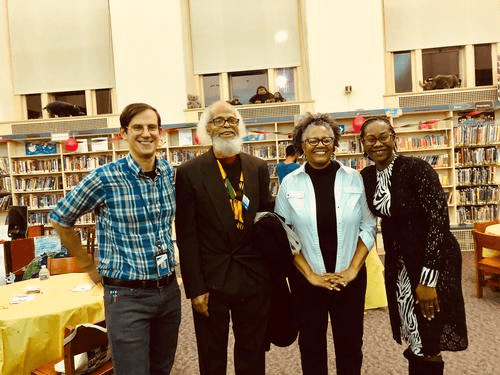
The Key: Tell me about yourself and where you work. What sort of music programming are you responsible for at the library?
Ben Remsen: I’m the Adult/Teen Librarian and the branch head at Kingsessing Library at 51st and Kingsessing. I’ve been working as a librarian in various places since 2008. Probably what I love most about working in a public library is that it’s a place that has an educational mission, but one that’s driven by the interests of the users.
My music-specific programming at FLP began with the pandemic. Since virtual programming wasn’t as closely linked to geography, we librarians were given leeway to follow our own niche interests. As someone who spent most of my 30s diving down the rabbit holes of styles of music generally lumped together as “jazz,” I went with that.
In August I led a virtual book discussion of a biography of Billie Holiday. In December I did a discussion of the documentary Milford Graves Full Mantis with its director, Jake Meginsky, in collaboration with the Ars Nova Workshop. In April I did a discussion of a Thelonious Monk biography, in conversation with Homer Jackson, the director of the Philadelphia Jazz Project. At the same time, I wrote a series of essays for the FLP blog, called Philly Jazz Legends, where I dug up as much Philly-specific history as I could about each subject, then wrote an annotated list of music by each person that you can stream for free with your library card using the Alexander Street database.
TK: You’re a musician who has played in bands. How would you describe what you do?
BR: My current musical project is working on fingerstyle guitar arrangements of “Baby Beluga” and “Under the Sea” to hopefully amuse my two year-old enough that she lets me get through one verse before grabbing the guitar to bang on it herself.
In the past, I played in bands called Little Ocean, Big Ocean, and Lionshead, as well as in the occasional ad hoc improvised context. I also sometimes set up shows. Once I started a series called “Ambient Brunch,” which, like, the name implies, consisted of late morning sets of spacious continuous music played while attendees ate brunch and read. The picture I included is me playing a sampler through a bunch of pedals at one of those events at this DIY venue that improbably existed for a while at 7th and Chestnut. That’s Osman Balkan on tenor, by the way.
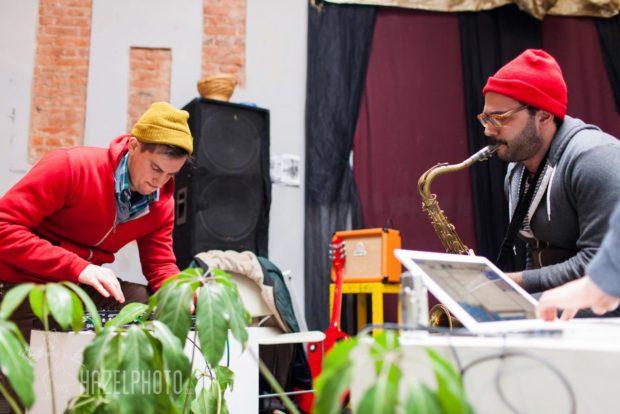
I also lived in Chicago for a few years, where I started a podcast profiling people from the scene there. Except instead of regular interviews, the concept was that I played them music related to their work, without telling them what it was, and we used that as the conversation prompt. I kept that going for a bit after I moved back to Philly, but it’s been dormant for a while. You can still hear all the episodes here and in the Apple podcast app and places like that.
TK: Finally, what are your recommendations?
For a movie, I have to go with Milford Graves Full Mantis, which can be streamed on Kanopy. It’s a gorgeous impressionistic portrait of Graves, who was an herbal healer, a martial artist, an experimental cardiologist (seriously, you have to watch the movie to find out what that means), and of course one of the people most responsible for the creation of the radical “multidirectional” drumming in the 1960s. It’s pure catnip for jazz heads, but I would also suggest it as a good entry point to someone unfamiliar with but curious about (for lack of a better term) free jazz.
For a book, I’ll go with the single best book I’ve ever read about jazz history, George E. Lewis’s A Power Stronger Than Itself, which covers the history of the Association for the Advancement of Creative Music. It’s a bit of a doorstop and not as good an entry point for newbies as the Milford Graves doc, but it’s just a complete and utter triumph of historical scholarship. The AACM was founded by Black musicians in Chicago to promote self-control of the scene and to teach the music to a younger generation. Lewis was part of the AACM from his teenage years until the present day, and he’s a professor of music at Columbia University. So he can get folks to open up to him in a way an outside academic couldn’t, but he also has the analytic chops to profoundly unpack the historical and musicological significance of the AACM.
Tieshay Cheryl
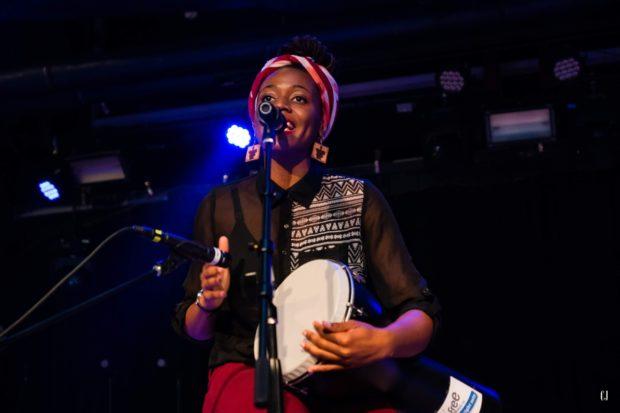
The Key: Tell me a bit about yourself. What sort of music programming have you done at the library?
Tieshay Cheryl: I am a poet, lyricist, singer and performing artist. My tenure at the library recently ended; I am currently a behavioral therapist. During my time with FLP I was a library assistant in the Klein Center. What I enjoyed about being a librarian was connecting with people through music, shared interests, sharing cultural experiences, and being of service to help best meet their inquisitive needs.
As for programs: I always joined the African drum circles. I did a virtual performance at the start of the year with the English Department. Before the pandemic I was in the process of planning a monthly music series and a poetry open mic which I hope to continue.
TK: Where can people listen to your music?
TC: I currently have an album out [whose name] was inspired by the beautiful Ms. Nina Simone called Unsung Blxckbyrd. You can purchase a CD from my website www.tieshcheryl.com or stream it on Spotify, Tidal, Apple Music, YouTube, and Soundcloud.
Music has always been apart of my life. I started off on the African drum team, I did choir, drumline and poetry/spoken word. I have been a recording artist creating and sharing my own personal music for approximately four years now.
TK: What book would you recommend?
TC: A book I would recommend is Nina Simone’s autobiography I Put a Spell on You. It really gives insight to the discipline it takes to pursue your dreams, how to overcome adversity, and how to utilize your voice with a purpose. It’s truly an inspiration and good testament to how challenging yourself to go outside your creative comfort zone can present opportunity for growth in ways you may not have seen coming.
Alberto Pagán-Ramirez
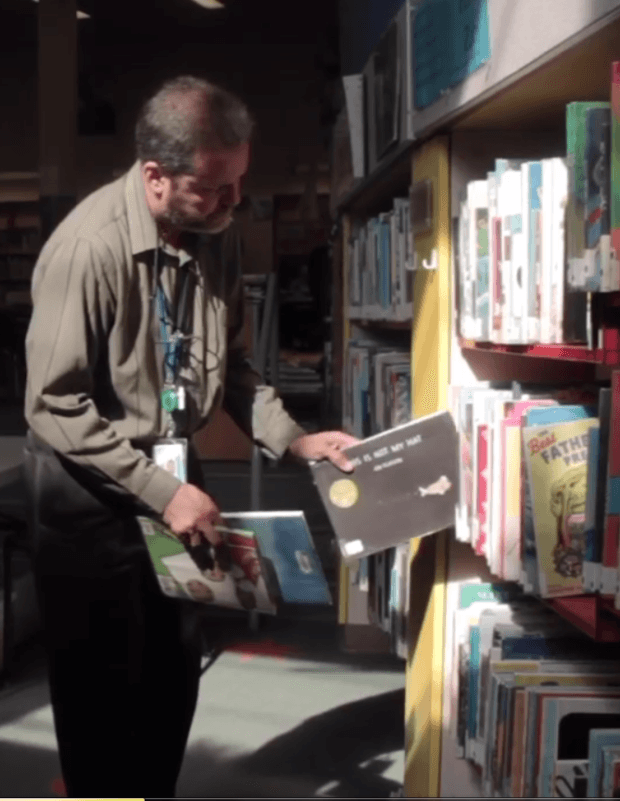
The Key: Where do you work and what’s your job title? What do you like about being a librarian?
Alberto Pagán-Ramirez: I work at the Durham Library on 34th Street and Haverford. I am the library supervisor. I’ve been a librarian for 15 years and at that branch three years. I became a librarian basically because librarians are in constant contact with knowledge. The fact that you can help people find information, find that knowledge, that’s what I love about the library.
TK: What kind of music programming have you done at the library? What do you like about performing there versus a traditional venue?
APR: I’ve done a lot of programming for children performing Puerto Rican music, particularly bomba and plena. I love the library because you get all kinds of people. More people go to libraries than go to festivals or to a club or something like that. The audience at the library is more open-minded because they know that the library is a place for learning new things and for knowledge. You have more children, more families.
TK: Tell me about the Instituto Puertorriqueno de Musica.
APR: I have a school where we teach all kinds of all kinds of instruments but we emphasize Puerto Rican instruments and Puerto Rican music.
TK: How long have you been playing music for?
APR: Here in Philly 20 years and before that back in Puerto Rico I played in a marching band, in a concert band, and in a symphonic orchestra. I’ve done a lot of things. I actually played in a rock band too for a little while.
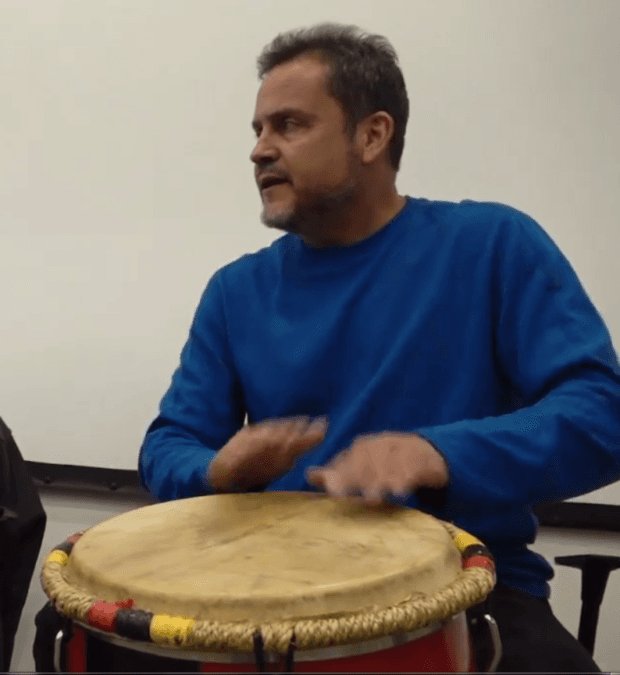
TK: What’s your recommendation?
APR: From Bomba to Hip-Hop: Puerto Rican Culture and Latino Identity by Juan Flores. This book shows the contributions of Puerto Rican music to the world of music, including hip-hop. People usually think that hip-hop was created by African Americans only and that’s not true. It was a creation between African Americans and Puerto Ricans in the Bronx.
Sam Perduta
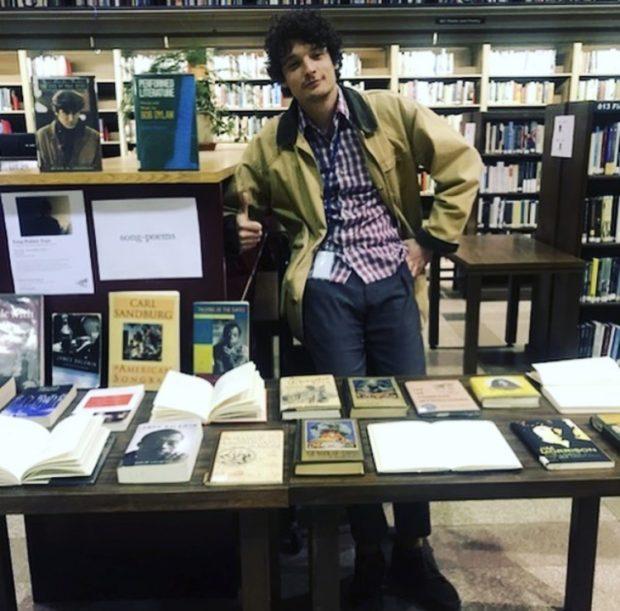
The Key: Tell me about yourself, what you do, and also about some of the music programming you’ve done at the library.
Sam Perduta: I work in the Literature Department at Parkway Central. I’ve been in the library field since I was about 16 – I was a library kid and I started as a volunteer in my hometown and have had every possible library job up to being a librarian since. I got into the field professionally because I enjoy helping people gain access to information in order to improve their lives and enjoy empowering people to think for themselves using knowledge and library services.
I’ve been with the Free Library six years. In terms of music-related programming: when I was a children’s librarian in Feltonville I used to teach local kids guitar and play music for story times. I’m currently running a program thru the Literature Department called Song-Poems, where local musicians adapt poetry from the collection into original works. We film and record the performances and put them online and are cataloging the material as original library content.
TK: You also play in bands. What’s your project called?
SP: My musical project is called Elison Jackson. I’ve been at it since around 2010. It’s essentially my songwriting project, with a rotating membership except for the bass player who’s been with the band since 2011. You can hear it at elisonjackson.bandcamp.com [ed. note: read more about the band and their latest release here].
TK: What book or movie would you recommend people check out?
SP: Alina Josan – art librarian at the FLP – and I were working on getting a Bessie Smith marker in South Philly pre-COVID so my most-recent music read was her biography called Bessie, by Chris Albertson. There’s a lot of cool Philly mentions and history throughout.
Adam Feldman
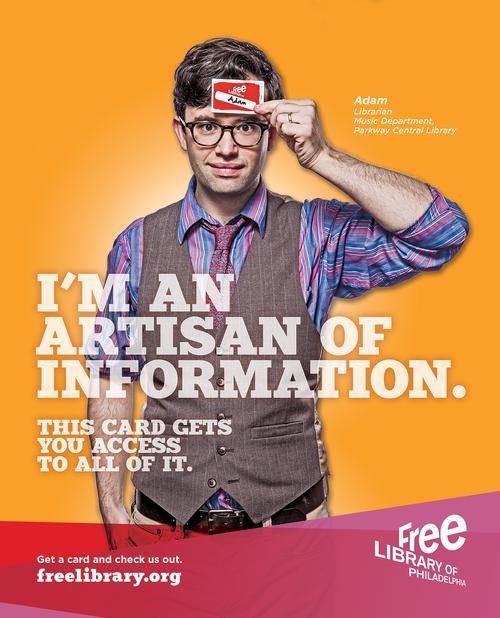
The Key: Tell me a bit about yourself. Where do you work? What’s your position there? What do you like about being a librarian?
Adam Feldman: I’m the “Library Coordinator” for the Central Library, which is really more like two dozen libraries under one roof. I help those special subject-based libraries work together to present events to the public, and to support educational programming from Pre-K through PhD level students and their teachers. I’ve been a librarian for more than 15 years and I really adore helping learners, artists, activists, everybody really discover what a powerful tool libraries are for solving problems or satisfying curiosities or making new things.
TK: Tell me about some of the music-specific programming you’ve done at the FLP. I know that’s a lot so I guess give me some highlights. What does the library offer as a ‘venue’ that is different or even better than a more traditional music space?
AF: The project I’m most proud of supporting is several seasons of the Mysterious Travelers jazz shows. When I was a librarian in the Music Department, this was my biggest programming project to date. I can’t bring this up without first mentioning that this series would have been impossible without visionaries like Homer Jackson (Philadelphia Jazz Project) and in the first season Leo Gadson’s (Producers’ Guild). However, because the library is much more than a venue, what started as a good opportunity for the Music Department to bring shows to our lush auditorium quickly evolved into us assigning band leaders other departments (Art, Newspapers, Children’s, Rare Books, Literature, Print & Pictures, etc) to conduct simple “research” projects to commission new work. We ended up with a series of deeply personal concerts of new works covering a wide range of topics. Philadelphia musicians, listen up! Librarians are ready to help you find inspiration to create new things.
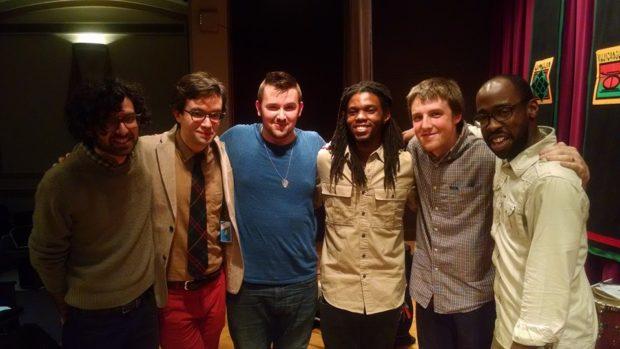
TK: Give me a recommendation for a music-related book from the FLP system or a movie that can be viewed on Kanopy!
AF: I think musicians or lovers of jazz, classical, pop, riot grrl, and Philadelphia in general should read I Put a Spell on You: The Autobiography of Nina Simone. It’s a short page turner that’s absolutely essential to the story of race, gender, and politics in popular music.
Naomi Socher-Lerner
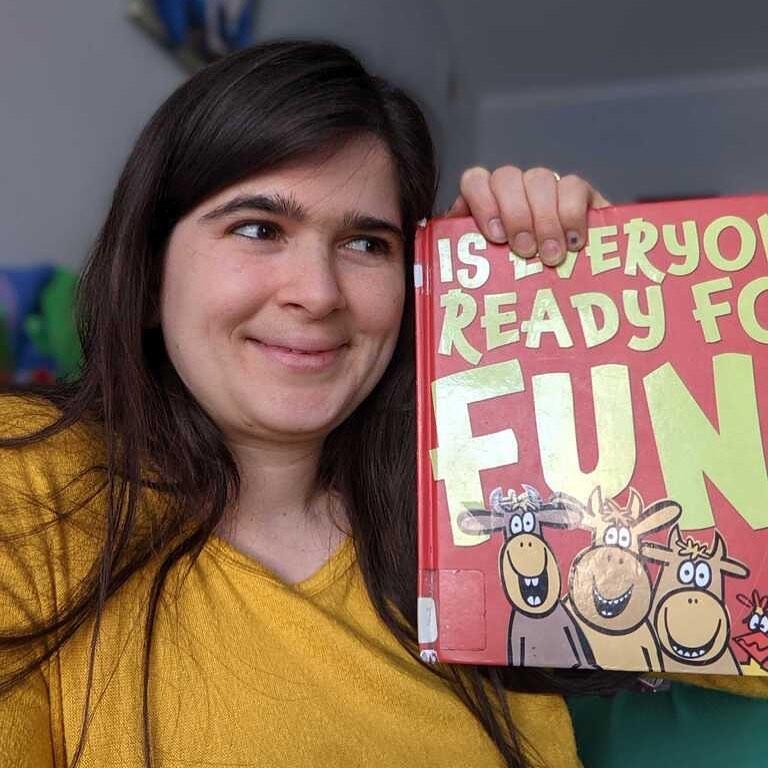
The Key: Tell me about yourself and your job at the library. What do you love about being a librarian?
Naomi Socher-Lerner: I’m Naomi Socher-Lerner (she/her) and I am a children’s librarian at the Parkway Central Children’s Department of the Free Library of Philadelphia. I’ve been working for the Free Library about two years now, and in the field of librarianship about a decade or a bit longer. What I love the most is making connections with children. I enjoy getting to be the kind of adult in their lives who, unlike teachers or parents, is not in charge of what they do, but rather free to share fun things and invite them to join in. I love handing a book to a child and saying “try it, and come back to tell me you hate it so I can find you something better.” If I’ve had a moment to connect with them first and really learn what they like, they invariably come back next time to tell me they did not hate it.
TK: What is the importance of music to being a children’s librarian? Explain some of the programming you do at the library that involves music. Do you ever perform outside of work?
NSL: Music is an essential part of my work! Songs, which often make sounds and individual syllables clear by assigning each syllable a different note, support early language development in slowing down the spoken word and early literacy in teaching children how to pull words apart into sounds. Finger plays can help with fine motor control and comprehension as well. For example, think about the itsy bitsy spider climbing UP the water spout while your hands climb up and then the rain comes DOWN while your hands go down. Music is also a great way to make an instant connection. When we sing together, we notice each other’s voices in unison with our own, and this creates a feeling of mutuality that builds trust. Plus, it’s fun!
For the library I run a weekly Music and Movement storytime that, pre-pandemic, used to draw 70-100 to what I affectionately called my toddler dance party each week. During the lockdown of the past year I continued with online performances on Facebook and recently I’ve gotten to resume in-person storytimes outside in Shakespeare Park, right outside the library. Join us on Wednesdays at 10:30am!
I’m currently using a guitar loaned to me by the Music Department, which as I’m sure you know has a circulating instrument collection. The instruments aren’t circulating right now due to the pandemic but I am very pleased that Perry Genovesi of the Music Department was able to collaborate with me for an in-house loan for the program.
I don’t play professionally outside of work and I’m not a trained or experienced performer outside of storytimes. Children don’t need that, though, and in fact I encourage parents to notice how my voice is just as liable to crack or go off-key as theirs and to notice how little their children care. Children just want to enjoy music with you.
TK: Give me a recommendation for a music-related book from the FLP system or a movie that can be viewed on Kanopy! It can be a recent find or something you’ve loved for years. Kids or adults or one from each category, I’ll leave that up to you.
NSL: Books I love to share at Music and Movement:
- Jazz Baby by Lisa Wheeler
- Hip Hop Lollipop by Susan Montanari
- Tommy Can’t Stop by Tim Federle
Perry Genovesi
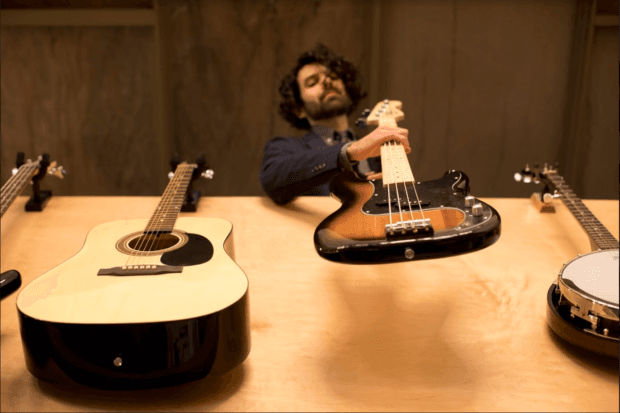
The Key: What’s your job title? Why do you love being a librarian?
Perry Genovesi: I work in the Parkway Central Library’s Music Department. I’m a Librarian II. What I love about my job is bringing information access to the people. In my case I’m serving Philadelphia’s diverse communities of music. Musicians; music listeners, writers and students; and dancers. What they ask for can be anything from the LOVE TKO lead sheet to a contract in one of our Directories; patrons can see every kind of contract a record company could throw their way. Or, we’ll have musicians who want to know the name of, say, Meek Mill’s agent. We have the tools to put them in touch.
In the before times we did live concerts and music workshops right here in the Department. The program featuring teens from the Beyond the Bars nonprofit were remarkable. The students – teens who the carceral system impacted – rocked out with original songs. They played some of the most cutting love songs I’ve ever heard. Imagine that viral Linda Lindas library video but more Philly.
TK: What’s your band?
PG: I play in a punk band called Bike Crash. We’ve been together since around 2012. You can find us on Bandcamp. I’ve been playing bass since I was about 13. I played in high school concert and jazz band. Then I moved to Philly and joined three bands at once. The Music Department here at Parkway Central also lends out instruments. So when our program launched I picked up a 5 string banjo and some how-to books. I accessed the Library’s LinkedIn Learning (fka Lynda.com) begjinning banjo video series. And that’s how I fell in love with old time and clawhammer banjo.
TK: Give me a recommendation for a music-related book or movie.
PG: Available on Kanopy, I’d recommend Grace Jones Bloodlight and Bami. It’s a great documentary about the singer. I’d only known Jones from her album Nightclubbing but the documentary gives you an intimate look backstage and at her family.